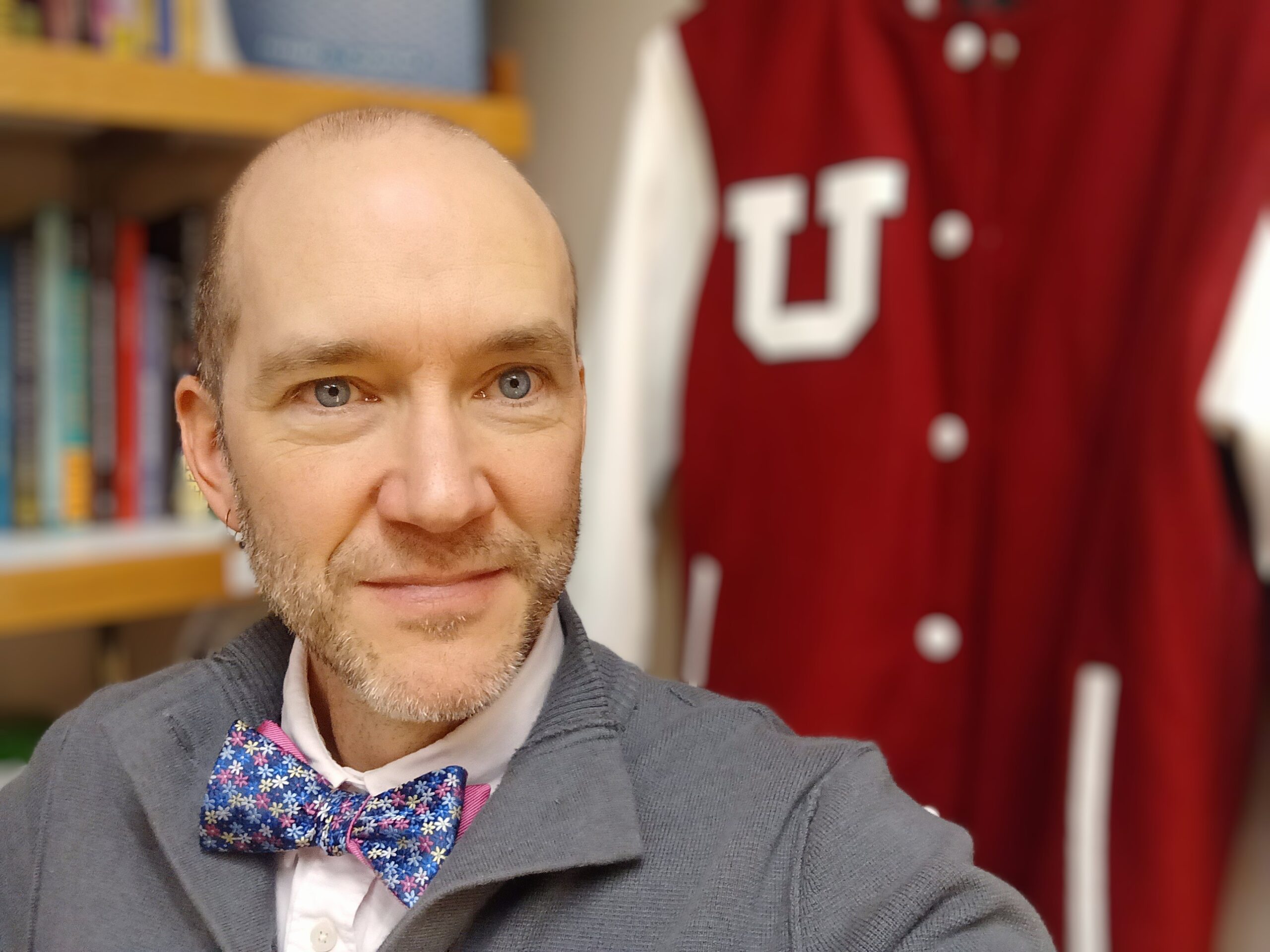Professor Jay Jordan’s WRTG 4010 opened up borders during the height of COVID
By the beginning of fall semester in 2020, the entire world knew that COVID-19 was here to stay. For schools and higher education institutions, that meant classes would resume via Zoom for an indefinite amount of time; and students and faculty alike were unsure if they would ever return to a “normal” pre-pandemic classroom setting.
While many lamented the decline of face-to-face interactions in their daily lives, professor Jay Jordan of the U’s Writing and Rhetoric Studies department saw a unique and unprecedented opportunity through the gloom—the chance to teach a course on two campuses at the same time.
“Writing (WRTG) 4010 focuses on English as an international language and what that topic means for writing. There’s a lot in the course that is theoretical, but I wanted to make sure that students had an opportunity to interact with others across borders,” said Jordan through a Zoom call from his native state of North Carolina. “It occurred to me after I came back from the U Asia Campus that if we have an entire campus in South Korea, we should make use of those connections.”
Jordan’s connection with the University of Utah Asia Campus, in fact, stretches as far back as its inaugural year in 2014, when he was invited to teach at the then-brand-new campus to a cohort of just 13 students. Since then, he has kept the U Asia Campus at the forefront of his research and incorporated it into various aspects of his courses.
“I had explored some low-level international collaborations with the U Asia Campus, mostly students emailing each other, but it didn’t amount to much,” said Jordan of his early efforts to involve the Asia Campus in WRTG 4010. Ironically, however, the most important opportunity for the course opened up as physical borders across the world began to close down.
With U Asia Campus professor Brandy Bippes, Jordan came up with the idea to co-instruct the course synchronously during the early days of the pandemic . Students in Salt Lake City would meet at 6 p.m., while those at the Asia Campus—15 hours ahead of Mountain Time—would begin at 9 a.m. for the U’s first ever cross-campus, internationally-instructed course. Students would be assessed by the professor at their respective campus, but the virtual classroom itself would provide a shared, simultaneous learning space for both Salt Lake City and U Asia Campus students for the first time in the U’s history.
The content of the course itself was, of course, at the root of Jordan’s decision to internationalize his classroom. By exposing American students to the concept of English as an international language, and deliberately straying away from a U.S.-centric curriculum, Jordan said, students were more likely to embrace and adopt global perspectives; especially so when sharing a classroom with Korean peers, for many of whom English is not their first or primary language.
Realizing the course’s full potential, however, came with its fair share of challenges, not the least of which was that Jordan had never before instructed an online course. Other challenges included lesson planning and co-instructing with a colleague in a different time zone, restructuring the course schedule according to daylight savings time, and encouraging active collaboration in awkward breakout rooms between students from drastically differing educational cultures.
Nevertheless, it came as a pleasant surprise to see that the course was highly enrolled and attended by students from both campuses. Former U Asia Campus student and WRTG 4010 alumnus, Jack Rogers, said, “it was amazing to have students from two campuses across the world in the same class at the same time. I feel like it really bridged a gap, culturally and educationally.”
After over a decade of teaching WRTG 4010, Jordan had finally achieved his original vision for the course in the unlikeliest of times.
Jordan plans to teach WRTG 4010 again in the fall of 2023. This time, he hopes to include a community engagement aspect to the course in which students can work on commissioned assignments with off-campus partners who need writing assistance.
Also in the works is a learning abroad opportunity for Salt Lake City campus students during the spring or fall break periods to visit the U Asia Campus in South Korea for relevant coursework, and to learn more about Korean culture as well.
“Internationalizing our curriculum really should be a matter of routine,” concluded Jordan in his Zoom interview, “building and maintaining a focus on international education is an ethical imperative. We ought to continue to see ourselves [at the University of Utah] as part of a much larger global community”.

